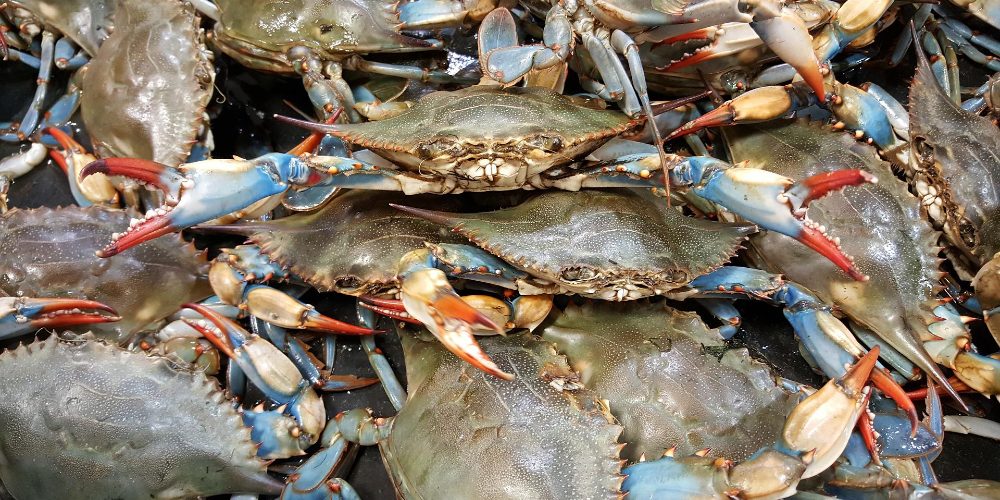If you put a crab inside a bucket, it will crawl out. However, if you put multiple crabs in a bucket, they will all stay inside the bucket. If any crab decides to attempt to leave the bucket, they will be pulled back in by their crab comrades.
It is believed that the reasoning of the crabs not letting any others escape the bucket can be best described as “if I can’t have it, neither can you.” Even if this results in them being turned into crab soup, the crabs will remain in the bucket. It’s where we could the term “crab mentality.”
Like crabs, anti-capitalists desire to keep society inside the bucket, even if that leads to disastrous ends. This can be seen through large scale socialist projects, such as that of the Soviet Union or Maoist China which were hell-bent on punishing the rich, even if that meant the poor had to suffer along with them. In addition, personal accomplishment and profit are punished under socialist regimes as it goes against collectivism and worker solidarity. It doesn’t matter if their five-year plans lead to food shortages and economic inefficiency. As long as everyone is inside the bucket, the crabs can all suffer together.
This mentality can also be seen through modern day anti-capitalists on a personal scale. Capitalism enables those who are skilful and hardworking to rise, leaving it up to the individual to decide their own fate.
As Ludwig von Mises states in The Anti-Capitalist Mentality:
“The sway of the principle, to each according to his accomplishments, does not allow of any excuse for personal shortcomings. Everybody knows very well that there are people like him who succeeded where he himself failed. Everybody knows that many from whom he envies are self-made men who started. And, much worse, he knows that all other people know it too. He reads in the eyes of his wife and children the silent reproach: “Why have you not been smarter?” He sees how people admire those who have been more successful than he and look with contempt or pity on his failure.
This individualism leads to personal responsibility, and those who are unable to accept personal responsibility try to blame others for their personal failures. Perhaps the crab is worried that he’d be unable to leave the bucket even if he tried. Perhaps he’s resentful that the other crab thought to leave the bucket before him. He projects his insecurities and grows jealous of anyone who does well. Instead of personal reflection on how to achieve his goals, the anti-capitalist pulls everyone else down. He does this by assuming anyone successful has achieved it through wickedness and trickery. He frames making a profit as selfishness. He advocates for policies to drag the successful down for the sake of equality.
Important: Our sponsors at Jase are now offering emergency preparedness subscription medications on top of the long-term storage antibiotics they offer. Use promo code “Rucker10” at checkout!
This can be seen most notably through the income tax, which takes money away from productive members of society and uses it to fund the welfare state. This punishes successful people in order to provide services and funds for people who did not earn the wealth themselves.
Why should somebody who works hard to lift themselves outside of the bucket be pushed back down because others are unable to do the same? Anti-capitalists spend their time searching for excuses that these people aren’t deserving of their income, whether that be landlords, bankers, or business owners. They love to smear those who contribute to society more than them.
Through the crab mentality, anti-capitalists are keen to use the state to drag the successful down by advocating for encroaching legislation that punishes them. They sneer at those who want to pull themselves up by the bootstraps and they promote dependence on the welfare state.
The problem is, by removing the incentive to work hard, they handicap productivity and innovation, and the whole country suffers as a result.
Unfortunately, there’s no happy ending for the crabs who stay in the bucket.

Jess Gill
Jess Gill is a British libertarian content creator. She is the host of Reasoned UK where she makes daily videos on British politics through a libertarian perspective.
This article was originally published on FEE.org. Read the original article.
Controlling Protein Is One of the Globalists’ Primary Goals
Between the globalists, corporate interests, and our own government, the food supply is being targeted from multiple angles. It isn’t just silly regulations and misguided subsidies driving natural foods away. Bird flu, sabotaged food processing plants, mysterious deaths of entire cattle herds, arson attacks, and an incessant push to make climate change the primary consideration for all things are combining for a perfect storm to exacerbate the ongoing food crisis.
The primary target is protein. Specifically, they’re going after beef as the environmental boogeyman. They want us eating vegetable-based proteins, lab-grown meat, or even bugs instead of anything that walked the pastures of America. This is why we launched a long-term storage prepper beef company that provides high-quality food that’s shelf-stable for up to 25-years.
At Prepper All-Naturals, we believe Americans should be eating real food today and into the future regardless of what the powers-that-be demand of us. We will never use lab-grown beef. We will never allow our cattle to be injected with mRNA vaccines. We will never bow to the draconian diktats of the climate change cult.
Visit Prepper All-Naturals and use promo code “veterans25” to get 25% off plus free shipping on Ribeye, NY Strip, Tenderloin, and other high-quality cuts of beef. It’s cooked sous vide, then freeze dried and packaged with no other ingredients, just beef. Stock up for the long haul today.


